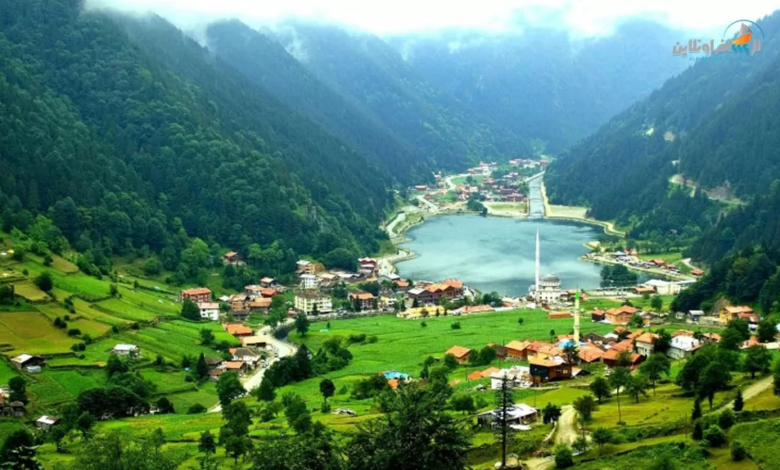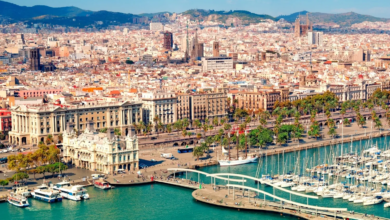The most important and best tips when traveling to Ghana

If you’re planning a trip to Ghana, here are some important and useful tips to keep in mind:
- Get a visa: Unless you are from a visa-exempt country, you’ll need to obtain a visa before traveling to Ghana. You can apply for a visa at the Ghanaian embassy or consulate in your home country.
- Get vaccinated: Make sure to get the necessary vaccinations before traveling to Ghana, including yellow fever, typhoid, and hepatitis A and B. Consult with your doctor or a travel health clinic well in advance of your trip.
- Pack appropriate clothing: Ghana has a tropical climate, so pack lightweight and breathable clothing. However, keep in mind that Ghana is a conservative country, so avoid wearing revealing or provocative clothing, especially in rural areas.
- Learn some basic phrases: While English is widely spoken in Ghana, it’s always helpful to learn some basic phrases in the local language, Twi, such as “hello” (akwaaba) and “thank you” (medaase).
- Be aware of the local customs: Ghana has a rich cultural heritage, and it’s important to be respectful of local customs and traditions. For example, it’s customary to shake hands and exchange pleasantries upon meeting someone.
- Use mosquito repellent: Ghana is a malaria-endemic country, so make sure to use mosquito repellent and consider taking prophylactic medication before and during your trip.
- Be cautious when traveling at night: Crime can be a problem in Ghana, especially at night. Avoid walking alone at night, and take taxis or other forms of transportation instead.
- Try the local cuisine: Ghana has a rich and diverse cuisine, including dishes such as jollof rice, banku, and fufu. Make sure to try some of the local dishes, and consider taking a cooking class to learn how to make them yourself.
- Visit the local markets: Ghana has many vibrant markets, such as the Kejetia Market in Kumasi and the Makola Market in Accra. These markets are a great place to shop for souvenirs, try local food, and experience Ghanaian culture.
- Be prepared for power outages: Power outages are common in Ghana, especially in rural areas. Make sure to bring a flashlight and extra batteries, and consider bringing a portable charger for your electronic devices.
By keeping these tips in mind, you can have a safe and enjoyable trip to Ghana.
- Respect the local religion: Ghana is a predominantly Christian country, but there are also many Muslims and traditional African religions practiced. Be respectful of local religious customs and practices, and dress conservatively when visiting religious sites.
- Be cautious when using public transportation: Public transportation in Ghana can be crowded and chaotic, especially in major cities like Accra and Kumasi. Be cautious when using public transportation, and consider hiring a private driver or using a reputable taxi service instead.
- Consider bringing your own water: While tap water in Ghana is generally safe to drink, it’s always a good idea to bring your own water or use a water filtration system to avoid any potential health risks.
- Be aware of the local currency: The currency in Ghana is the Ghanaian cedi (GHS). Make sure to exchange your currency at a reputable exchange bureau or bank, and be aware of the current exchange rates to avoid being scammed.
- Be mindful of your belongings: Petty crime, such as pickpocketing, can be a problem in Ghana, especially in crowded areas like markets and public transportation. Keep a close eye on your belongings, and avoid carrying large sums of cash or valuable items with you.
- Learn about the local history and culture: Ghana has a rich and complex history, and there are many museums and historical sites to visit. Make sure to learn about the local history and culture to gain a better understanding of the country and its people.
- Be respectful of the local wildlife: Ghana has a diverse range of wildlife, including elephants, monkeys, and crocodiles. If you visit a wildlife sanctuary or national park, be respectful of the animals and follow the rules and regulations to ensure their safety.
- Use sunscreen: Ghana has a hot and sunny climate, so make sure to use sunscreen and wear a hat and sunglasses to protect yourself from the sun.
- Be patient: Ghana operates on a more relaxed schedule than many Western countries, so be prepared for delays and unexpected changes in plans. Embrace the local culture and learn to go with the flow.
By keeping these additional tips in mind, you can have a safe, enjoyable, and culturally enriching trip to Ghana.
- Stay hydrated: Ghana has a hot and humid climate, so make sure to drink plenty of water to stay hydrated. Carry a refillable water bottle with you and fill it up at safe sources, such as filtered water dispensers.
- Be respectful of elders: Respect for elders is an important part of Ghanaian culture. When interacting with older people, make sure to greet them first and use respectful language.
- Be aware of the local business culture: Ghana has a hierarchical business culture, so it’s important to show respect to those in positions of authority. Dress conservatively for business meetings and avoid being too direct or confrontational.
- Tip appropriately: Tipping is not mandatory in Ghana, but it’s appreciated for good service. Tip waitstaff, taxi drivers, and other service providers at your discretion, usually around 10% of the total cost.
- Be mindful of your photography: Ask for permission before taking photos of people, especially in rural areas. Some people may be uncomfortable having their photo taken, and it’s important to respect their wishes.
- Respect the environment: Ghana has a beautiful natural environment, including national parks and beaches. Make sure to respect the environment by not littering, avoiding damaging plants or wildlife, and following park rules and regulations.
- Learn about the local music and dance: Ghana has a rich music and dance tradition, and there are many festivals and performances to enjoy. Consider attending a concert or dance performance to experience the local culture.
- Be prepared for power outages: Power outages are common in Ghana, especially in rural areas. Make sure to bring a flashlight and extra batteries, and consider bringing a portable charger for your electronic devices.
- Be prepared for traffic: Traffic can be heavy and chaotic in major cities like Accra and Kumasi. Plan your travel accordingly and allow extra time for traffic delays.
By keeping these additional tips in mind, you can have a safe, enjoyable, and culturally enriching trip to Ghana.
- Be aware of the local scams: Scams targeting tourists are unfortunately common in Ghana. Be cautious of people offering unsolicited help, overly friendly locals, and requests for money or gifts. Always use common sense and trust your instincts.
- Consider hiring a local guide: A local guide can provide valuable insight into Ghanaian culture and history, and can also help you navigate unfamiliar areas. Consider hiring a local guide for a day or two to enhance your experience.
- Learn about the local art scene: Ghana has a vibrant art scene, with many talented painters, sculptors, and designers. Visit local galleries and markets to see and purchase authentic Ghanaian art.
- Respect the local LGBTQ+ community: Ghana is a conservative country, and homosexuality is illegal. Be respectful of the local LGBTQ+ community and avoid public displays of affection with same-sex partners.
- Be prepared for the rainy season: Ghana has a rainy season from April to November, with heavy downpours and occasional flooding. Bring a raincoat or umbrella and be prepared for travel delays.
- Be aware of the local dress code: Ghana is a conservative country, and it’s important to dress modestly, especially in rural areas and when visiting religious sites. Avoid wearing revealing clothing or shorts and tank tops.
- Be respectful of local elders: Respect for elders is an important part of Ghanaian culture. When interacting with older people, use respectful language and greet them first.
- Try the local street food: Ghana has a vibrant street food scene, with many delicious and affordable options. Try local specialties like kelewele (spicy plantains) or waakye (rice and beans) from street vendors.
- Be mindful of your belongings at the beach: Theft is common at some of Ghana’s popular beaches, especially in the evening. Keep a close eye on your belongings and avoid leaving them unattended.
By keeping these additional tips in mind, you can have a safe, enjoyable, and culturally enriching trip to Ghana.
- Be aware of the local time: Ghana is on Greenwich Mean Time (GMT), which means that it is 5 hours ahead of Eastern Standard Time (EST) in the United States. Make sure to adjust your watch accordingly.
- Be respectful of local gender roles: Gender roles in Ghana are traditional, with men often being seen as the head of the household and women responsible for domestic duties. Be respectful of these cultural norms and avoid being too confrontational about gender equality.
- Learn about the local sports scene: Ghana has a strong sports culture, with soccer being the most popular sport. Attend a local soccer match or visit a sports bar to experience the local sports scene.
- Be aware of the local traffic laws: Traffic laws in Ghana can be different from those in your home country. Be aware of the local laws and customs, and consider hiring a driver if you’re not comfortable driving yourself.
- Respect the local wildlife: Ghana has many beautiful national parks and wildlife reserves, but it’s important to be respectful of the local wildlife and their habitats. Follow park rules and regulations and avoid disturbing the animals.
- Be prepared for cultural differences: Ghana has a unique and diverse culture, and there may be some cultural differences that take some time to get used to. Embrace the local culture and be open-minded.
- Learn about the local history of slavery: Ghana was a major hub for the transatlantic slave trade, and there are many historical sites and museums that tell the story of this dark period in history. Visit these sites to gain a better understanding of the local history.
- Be aware of the local weather patterns: Ghana has a tropical climate, with heavy rains during the rainy season and hot and humid weather during the dry season. Be prepared for the weather conditions and pack accordingly.
By keeping these additional tips in mind, you can have a safe, enjoyable, and culturally enriching trip to Ghana.
- Be respectful of local customs around food: In Ghana, it is customary to eat with your right hand, and to avoid using your left hand for eating or passing food. Learn about local customs around food and dining to avoid causing offense.
- Be cautious when using ATMs: ATM scams are a common problem in Ghana, so be cautious when using ATMs and consider using machines located inside banks or other secure locations.
- Be aware of the local dress code for business meetings: In business settings, it is important to dress conservatively and professionally. Men should wear suits or dress shirts and slacks, while women should wear modest dresses or skirts and blouses.
- Be respectful of local customs around religion: Ghana is a predominantly Christian country, but there are also many Muslims and followers of traditional African religions. Be respectful of local religious customs and practices, and dress conservatively when visiting religious sites.
- Consider volunteering or supporting a local charity: There are many local charities and organizations in Ghana that work to improve the lives of local people. Consider volunteering or supporting a local charity to give back to the community during your trip.
- Be prepared for language barriers: While English is widely spoken in Ghana, there may be some language barriers, especially in rural areas. Bring a translation app or phrasebook to help communicate with locals.
- Be cautious when using public Wi-Fi: Public Wi-Fi in Ghana may not be secure, so be cautious when using it and avoid accessing sensitive information or logging into financial accounts.
- Be respectful of local authority figures: Ghana has a hierarchical culture, so it’s important to show respect to those in positions of authority, such as police officers and government officials.
- Research your destination before you go: Ghana is a diverse country with many different regions and destinations to explore. Research your destination before you go to get a better understanding of the local culture and attractions.
By keeping these additional tips in mind, you can have a safe, enjoyable, and culturally enriching trip to Ghana.
- Use insect repellent: Ghana is home to mosquitoes and other insects that can carry diseases like malaria and dengue fever. Use insect repellent and wear long-sleeved clothing to protect yourself from insect bites.
- Be respectful of local customs around greetings: In Ghana, it is customary to greet people with a handshake or fist bump, and to use titles like “Madam” or “Sir” when addressing elders or authority figures.
- Be cautious when using public restrooms: Public restrooms in Ghana may not be as clean or well-maintained as those in your home country. Bring hand sanitizer and toilet paper with you, and be prepared for squat toilets in some areas.
- Be prepared for power outages: Power outages are common in Ghana, especially in rural areas. Bring a flashlight and extra batteries, and consider bringing a portable charger for your electronic devices.
- Respect the local dress code for beaches: While Ghana has beautiful beaches, it’s important to dress conservatively when visiting them. Avoid wearing revealing swimwear or going topless.
- Be mindful of your environmental impact: Ghana has a fragile ecosystem, and it’s important to be mindful of your environmental impact. Avoid littering and consider using eco-friendly products and services.
- Learn about the local handicrafts: Ghana is known for its handicrafts, including textiles, pottery, and baskets. Visit local markets and shops to see and purchase authentic Ghanaian handicrafts.
- Be respectful of local customs around haggling: Haggling is common in Ghanaian markets, but it’s important to be respectful and not overly aggressive. Start with a reasonable offer and negotiate from there.
- Be aware of the local laws around drugs: Drug laws in Ghana are strict, and penalties for possession or trafficking can be severe. Avoid using or transporting drugs during your trip.
- Learn about the local music scene: Ghana has a rich music tradition, with many different styles and genres to explore. Attend a concert or visit a music store to experience the local music scene.
By keeping these additional tips in mind, you can have a safe, enjoyable, and culturally enriching trip to Ghana.
- Carry small bills and change: Small bills and change are useful for paying for transportation, buying food at markets, and tipping. Make sure to carry small denominations of Ghanaian cedi with you.
- Be respectful of local customs around time: Time is viewed differently in Ghana than in some other parts of the world. While punctuality is important in business settings, it may not be as strictly adhered to in social settings. Be patient and flexible with schedules.
- Learn about the local dance traditions: Ghana has a rich dance tradition, with many different styles and performances to experience. Attend a dance performance or take a dance class to learn more about the local culture.
- Be cautious when using credit cards: Credit card fraud is a problem in Ghana, so be cautious when using your credit card and avoid using it in unsecured locations.
- Be respectful of local customs around personal space: Personal space is viewed differently in Ghana than in some other parts of the world. It is common for people to stand close together or touch during conversations. Be respectful of local customs and norms.
- Be prepared for language barriers in rural areas: While English is widely spoken in Ghana, there may be language barriers in rural areas. Consider learning some basic phrases in the local language or bringing a translation app with you.
- Be aware of the local laws around photography: Taking photos of certain locations, such as military installations or government buildings, may be prohibited. Always ask permission before taking photos of people.
- Be respectful of local customs around gift-giving: Gift-giving is an important part of Ghanaian culture. If invited to someone’s home, consider bringing a small gift like fruit, candy or a small souvenir.
- Be cautious when traveling at night: Crime rates tend to be higher at night, particularly in urban areas. Avoid traveling alone at night and stick to well-lit areas.
- Be respectful of local customs around family and relationships: Family is highly valued in Ghanaian culture, and it is important to be respectful of family relationships and dynamics. Avoid making negative comments about family members or relationships.
By keeping these additional tips in mind, you can have a safe, enjoyable, and culturally enriching trip to Ghana.



